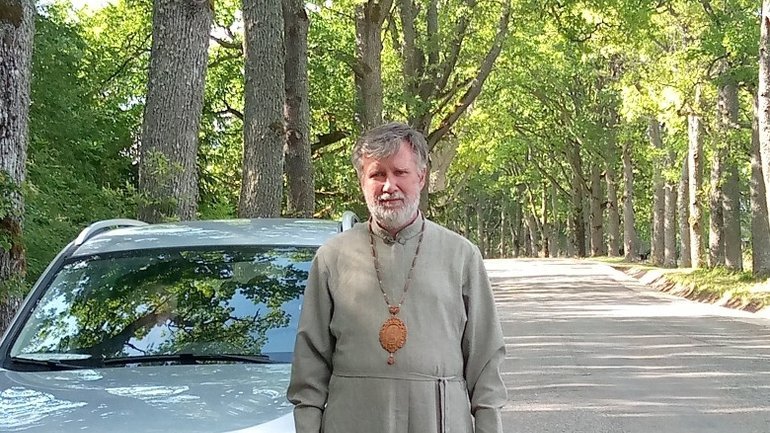FSB agents asked me: Whose God, Ukrainian or Russian, do you serve? - OCU bishop on being under occupation

In an interview with Channel 5, the hierarch shared his memories of living under occupation.
"The flock remains, people remain. Where should we run? I understand that the occupiers came. But who said that after they came, this is no longer my home?" the bishop noted.
The Russians visited the hierarch of the OCU three times. The visitors were both military personnel and representatives of the special services.
"They started talking about the UOC of the Moscow Patriarchate. Why aren't you with the Moscow Patriarchate? I said the community doesn't want to. They want to pray in the modern Ukrainian language, and they like it. They started saying something about Kirill. 'The Church is always a field of activity for special services.' I said, I absolutely don't understand anything. I've never heard that before. He says, 'What you're telling me is an absolute truth," Bishop Nykodym recalled.
He was the first from the Kherson eparchy to join the OCU. However, when he found himself under occupation, the enemy tried to coerce him into cooperation.
"They said that the ROC would be here in the end. I said that if the ROC is here, then I won't be in this church. I'd rather pray at home," the clergyman explained.
The hierarch explained how he and other priests of the OCU managed to survive under occupation.
“They had issues within the UOC MP. And what were these noteworthy issues? Collaborators were present within its ranks. You may already be familiar with Shkil, namely Gennadiy Shkil. Shkil and similar figures took it upon themselves to settle scores with their fellow ministers from the same eparchy whom they deemed lacking in patriotism. They managed to apprehend a certain priest who held pro-Russian views. He endured severe beatings, being cast into a pit, where he endured suffering for a fortnight. His body bore the evidence of his ordeal, adorned with bruises. Through it all, we felt as if God was watching over us," shared Bishop Nykodym.
Several times, the OCU hierarch tried to leave the occupied city of Oleshky with his elderly mother. However, the Russians turned him back without explanation. The situation came to a head on June 23rd when the Russian forces blew up the Kakhovka Hydroelectric Power Station. The clergyman's house was flooded.
"I can say that many people died. And there are still many unburied. I had to leave earlier because, on the 12th, they came with searches and interrogations for Peter and Paul's day. 'Hello, which God do you serve?' An unexpected question. I said I'm Orthodox. I follow Jesus Christ, guided by the Gospel. 'Which Jesus Christ – Russian or Ukrainian, the one who dug the Black Sea?' I said, you know, I don't understand you at all. What are you talking about? 'Alright, we won't have a conversation then,' they said,” Archbishop Nykodym recounted.
The Russians took the hierarch to the police station and took his fingerprints. They interrogated him for several hours: they asked about his attitude towards the so-called "SVO" (Special Military Operation in Russian). called him a schismatic and said that because of people like him, the war began. But after they finally released Bishop Nykodym, the Russians set another trap for the clergyman.
At one of the checkpoints, they said, "Well, you need to get a Russian passport, have a conversation." I said, "I'm going out now, lying down on that asphalt. And you do whatever you want, run me over, shoot."
After a few hours of pressure, they finally released Bishop Nykodym with his sick mother.
From the occupied Oleshky, he went to Mariupol. From there to Russia, Estonia, and Poland. To end up on the territory controlled by Ukraine. The hierarch spent almost a week on the difficult, exhausting journey, covering about four thousand kilometers. And finally, he found himself in Saint Michael's Golden-Domed Monastery in Kyiv.
For two weeks, the head of the Kherson eparchy stayed in one of the capital's hospitals. After recovering from what he had experienced, he met with the Primate of the OCU, Epifaniy, and participated in the Local Council in Kyiv. He says he returned home. However, this feeling is incomplete. In some time, he plans to go to Kherson. There, his parishioners are waiting for him.









